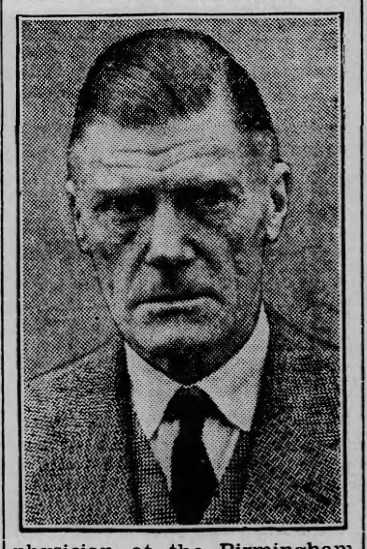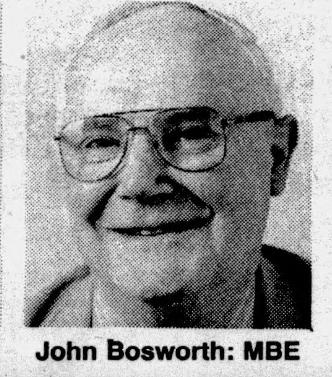DRAMA IN FOR A GOOD TIME AGAIN.
A CHAT WITH MR. G. CARLTON WALLACE.
 The poor old drama has been in a very grave condition of late years, both in London and the provinces, according to many, and its early demise has even been predicted, but there have recently been indications that it is quickly recovering, and will soon be quite its old lively self again. There is the wonderful success of the sporting drama The Whip, at Old Drury, which reached its anniversary yesterday; the fortunes of the Lyceum were revived with romantic drama; melodrama has been packing the Aldwych for months; and the suburban houses devoted to this class of fare have little to complain of in the way of attendance and takings when they stage really first-class plays and companies.
The poor old drama has been in a very grave condition of late years, both in London and the provinces, according to many, and its early demise has even been predicted, but there have recently been indications that it is quickly recovering, and will soon be quite its old lively self again. There is the wonderful success of the sporting drama The Whip, at Old Drury, which reached its anniversary yesterday; the fortunes of the Lyceum were revived with romantic drama; melodrama has been packing the Aldwych for months; and the suburban houses devoted to this class of fare have little to complain of in the way of attendance and takings when they stage really first-class plays and companies.
If the croakers with their lamentations were to run up against the well-known touring manager and author, Mr. G. Carlton Wallace, they would speedily be convinced that drama – well written, well played, and well mounted – is still a big attraction in the country. Mr. Wallace, whose company has recently been doing excellent business at the Elephant and Castle Theatre with his new romantic play, The Apple of Eden, written by himself, speaks with authority and complete knowledge of his subject, for he has been touring plays from his own pen for some considerable time now, and frankly admits that he has little to grumble at. Besides his latest success he has written The Love That Women Desire, A Thief in the Night, The Lancashire Lad, and The Village Blacksmith, a play which ran for seven years. His shortest run was with A Lancashire Lad (three years), and he has never written a failure, which is something unique in the way of dramatic authorship.
“Yes, drama is in for a good time again,” said Mr. Wallace emphatically, in a brief chat with an Era representative. “It is the staff of life to the theatre. Audiences may stray for a time, but they invariably return. Witness the strong demand there has been recently in the West-End for drama. When it languishes the blame must rest mainly with the resident manager. He has the power to sweep every bad play or company off the road by shutting his doors on them. Bogus could not obtain a foothold were resident managers to personally visit the companies they contemplate booking. They would see plainly whether the play would draw or not. Proprietors with the monopoly of a town are the worst offenders in this respect. When they think their audiences want a rest from musical comedy they invariably book the cheapest drama obtainable, thereby giving their patrons a false impression of what the first-class article is like.
“Personally, I have little to complain about. Being so long established a manager, and known to give good productions, resident managers will book a play in advance. The only complaint I have against resident managers is that they will not come to see a production, and judge for themselves the merit or otherwise of a show.”
There does not appear to be sufficient elasticity in the terms given to touring managers. Some resident managers there are who offer a ridiculously low percentage. You may take it or leave it. And the little man, of course, has to take it. There are many young touring managers ready and willing to do the thing properly who, after one tour, are compelled to retire. Mr. Wallace is of opinion that if a town is properly worked there should never be a dull season. The best of the kind of entertainment in demand should be provided, and there is always sufficient good drama to go round.
It is the cheap and nasty in drama that does the harm, and morbid and harrowing situations appeal only to the minority. Mr. Wallace, an enthusiastic and energetic worker, personally supervises every department in his companies, down to the smallest detail, and is careful that everything shall be of the best so far as in his power lies. Being the writer of all the plays he runs, he saves author’s fees, and this is a big advantage to a touring manager. He, of course, also knows exactly how each part should be played, and is particularly careful in the selection of his company. Any success he may have achieved he attributes mainly to hard work and a determination to go in and win, and “Thoroughness in everything” would appear to be his motto. “I firmly believe, he says, “now that the picture palaces and skating rinks have levelled themselves out, the drama will quickly come into its own again.”
So confident is he in the drawing power of good drama that he anticipates a London season in the not far distant future.
But he will speak of this later, when his plans are more matured. At present he finds himself kept pretty busy looking after his two companies touring A Thief in the Night, and his latest artistic and financial triumph, The Apple of Eden, both of which are well booked ahead.
(The Era, 10th September 1910)



 The poor old drama has been in a very grave condition of late years, both in London and the provinces, according to many, and its early demise has even been predicted, but there have recently been indications that it is quickly recovering, and will soon be quite its old lively self again. There is the wonderful success of the sporting drama The Whip, at Old Drury, which reached its anniversary yesterday; the fortunes of the Lyceum were revived with romantic drama; melodrama has been packing the Aldwych for months; and the suburban houses devoted to this class of fare have little to complain of in the way of attendance and takings when they stage really first-class plays and companies.
The poor old drama has been in a very grave condition of late years, both in London and the provinces, according to many, and its early demise has even been predicted, but there have recently been indications that it is quickly recovering, and will soon be quite its old lively self again. There is the wonderful success of the sporting drama The Whip, at Old Drury, which reached its anniversary yesterday; the fortunes of the Lyceum were revived with romantic drama; melodrama has been packing the Aldwych for months; and the suburban houses devoted to this class of fare have little to complain of in the way of attendance and takings when they stage really first-class plays and companies.
